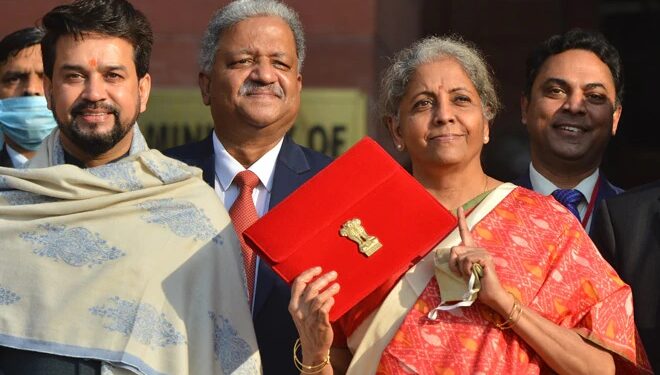In our earlier post we had discussed in brief various changes made by Budget 2021 to Income tax and GST.
Now let’s discuss a few amendments in detail. Although there were not many changes which would affect individuals as this budget was more focused on overruling the judgement passed by various courts in different matters and reduce various time limits.
Some changes which would affect individuals and majorly HNI’s is as under:
1. Amendment for contribution made to Provident fund above Rs. 2.5 Lakh:
Till now the following receipt was exempt under section 10 relating to provident fund:
“(11) any payment from a provident fund to which the Provident Funds Act, 1925 (19 of 1925), applies or from any other provident fund set up by the Central Government and notified by it in this behalf in the Official Gazette;”
“(12) the accumulated balance due and becoming payable to an employee participating in a recognised provident fund, to the extent provided in rule 8 of Part A of the Fourth Schedule ;”
Thus based on above clauses more or less all receipt from provident fund to all person was exempt except a few class of employees.
However now an amendment has been made to such clauses after which all receipts from provident fund won’t be exempt. The amendment proposed in Finance Bill 2021 is as under:
“Provided that the provisions of this clause shall not apply to the income by way of interest accrued during the previous year in the account of a person to the extent it relates to the amount or the aggregate of amounts of contribution made by that person exceeding two lakh and fifty thousand rupees in any previous year in that fund, on or after the 1st day of April, 2021 and computed in such manner as may be prescribed;”
Thus, after the above amendment it prima facie looks like that any interest earned on contribution above Rs. 2.5 lakh would not be exempt i.e. if a person makes contribution of Rs. 3 lakh in such fund in a year interest on Rs. 50,000 which is in excess of Rs. 2.5 lakh shall be taxable.
Although this section talks about all the persons however if you read the memorandum issued with this Finance bill, it talks only about employees contribution and hence such taxability should only apply to contribution by employees and hence if a person makes contribution to employees fund and public provident fund this provision should not apply.
Relevant extract of memorandum are as under:
“Instances have come to the notice where some employees are contributing huge amounts to these funds and entire interest accrued/received on such contributions is exempt from tax under clause (11) and clause (12) of section 10 of the Act. This exemption without any threshold benefits only those who can contribute a large amount to these funds as their share. Accordingly, it is proposed to insert proviso to clause(11) and clause (12) of section 10 of the Act, providing that the provisions of these clauses shall not apply to the interest income accrued during the previous year in the account of the person to the extent it relates to the amount or the aggregate of amounts of contribution made by the person exceeding two lakh and fifty thousand rupees in a previous year in that fund, on or after 1st April, 2021, computed in such manner as may be prescribed.”
As we can see the memorandum talks about employees making huge contribution and earning exempt income and such huge contribution can only be made by employees who are in high position of company and huge salary and hence many CEO, CFO and other high salary earning people will have to restructure their salary.
2. Amendment has been made to Section 10(10D) of the Income tax Act for Unit Linked Insurance Plan with premium over Rs. 2.5 lakh:
In this amendment it has been proposed to amend section 10(10D) whereby any proceeds received from Unit Linked Insurance Plan issued after 01.02.2021 where contribution or aggregate of contribution made during a year exceeds Rs. 2.5 Lakh.
Further such ULIP plan have been included in the definition of section 2 and any proceeds from such fund shall be taxable as capital gain.
Also, such high premium plans are mostly taken by High net worth individuals to earn some tax free income and hence Ministry has proposed such amendment.
The same intention is mentioned by Ministry of finance in Memorandum to Finance bill which is as under:
“Instances have come to the notice where high net worth individuals are claiming exemption under this clause by investing in ULIP with huge premium. Allowing such exemption in policy/policies with huge premium defeats the legislative intent of this clause.”
Thus, this are two major amendment which shall effect High net worth individuals. Although government is trying to charge more tax from the people earning more but increasing tax and taxable income for HNI at such high pace could also be dangerous.
Last year government had increased the highest tax slab rate to 42.74% and now making a few income sources taxable for HNI’s which is exempt for others could lead to a very negative impact for HNI’s of the country.




![[Live] Updates and Tax changes for Budget 2023 | Tax on cryptocurrency | Income tax and GST udpates in Budget 2023 [Download Bill]](https://www.taxontips.com/wp-content/uploads/2023/02/Budget-2023-350x250.webp)








![[Live] Updates and Tax changes for Budget 2023 | Tax on cryptocurrency | Income tax and GST udpates in Budget 2023 [Download Bill]](https://www.taxontips.com/wp-content/uploads/2023/02/Budget-2023-120x86.webp)


it is tenable to impose tax on the interst on empolyee contriburtion in excess of 250000 in any financial year commencing from 1st April ,2021 but a question may crops up i.e incase of unusal circumtance i.e suspensation temporary , changing of employment ,arreas salary as result of pay revision ,the aggregate emloyees contribution is likely to be in excess of the above limit ,how willbe treated? The elaboration is called for otherwise it is likely to be trigger in to litigation. Incase an employee receives arrea received just afterretirement where emploees contribution is deducted which falls beyond the particular financial year what would be way of treatment for calculation the limit in question? This is imbroglic issue needs to be clarified.
Correct. As mentioned manner shall be prescribed.
Let’s wait for the same.
Regards,
Team Taxontips.com